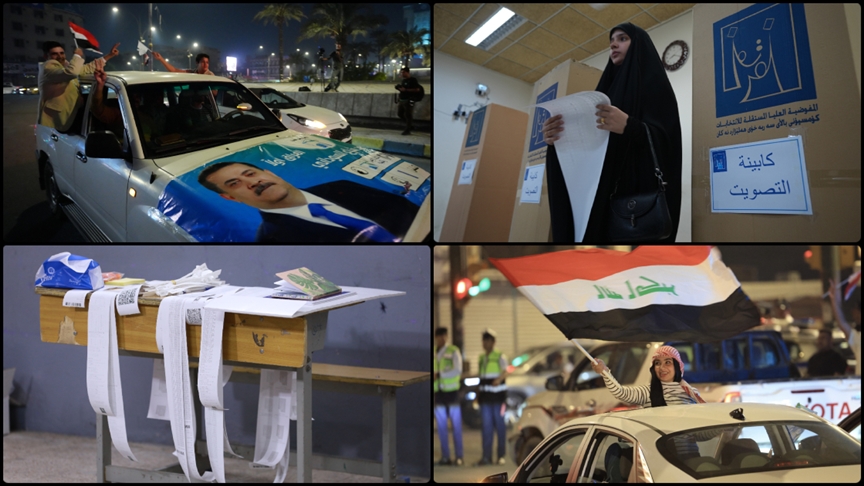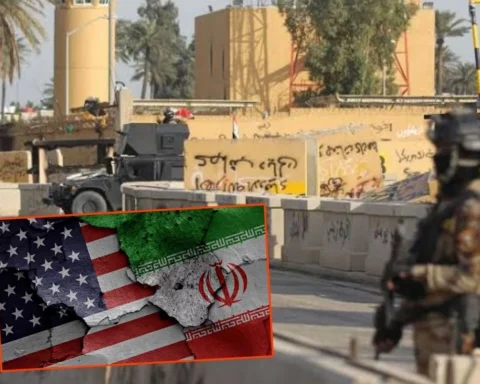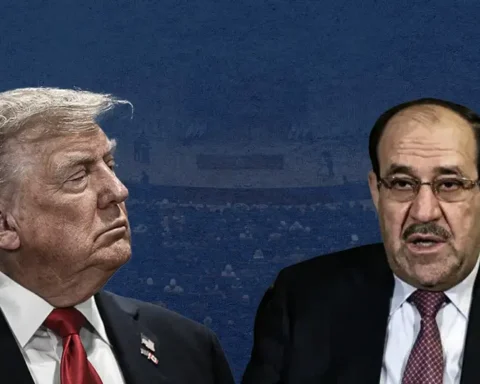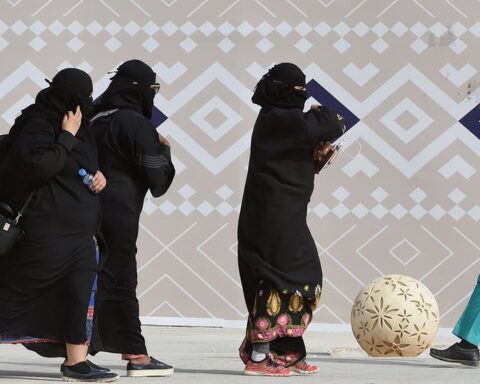The elections have ended, but the real struggle has just begun. The outcome of the elections is not in doubt, because Iraq’s political landscape is not shaped by ballots, but by militias, regional loyalties and the wealth now concentrated in the hands of a sectarian oligarchy. Iran-backed militias did not enter the elections to compete; they entered to reshape power from within the state. They have learned that remaining in government is far more lucrative than remaining outside it.
In this landscape, election results are meaningless. Since 2003, Iraq’s political experience has shown that winners are excluded and losers are accommodated. The Sadrist movement won in 2021 but was sidelined. In 2010, Iyad Allawi’s bloc won, but Nouri al-Maliki refused to relinquish power. Elections in Iraq do not establish new foundations; they merely recycle existing dominance.
Mohammed Shia al-Sudani, now presented as a proponent of “good governance”, emerged from a sectarian environment overseen from abroad. He was not chosen for his Iraqi identity, but for his Shia affiliation and his acceptance by Tehran and the Najaf clerical establishment. The core of the Dawa Party, of which Sudani is a member, has always prioritised sect over nation. How could it produce anything other than the sectarian shallowness of Ibrahim al-Jaafari and Nouri al-Maliki?
In an article titled “Iraq Is Quietly Falling Apart” in Foreign Affairs, Michael Knights writes that “Iran-backed militias no longer merely influence political decisions — they are reshaping state institutions from within, hollowing out their functional meaning.” This shift from the shadows to the forefront is not democratic evolution; it’s the state becoming a façade for militia power.
The Financial Times quoted a senior Shia politician as saying that ‘Nouri al-Maliki would rather die than allow Sudani a second term’, revealing the depth of division within the Iran-aligned Coordination Framework, where the premiership is a tool of domination rather than an administrative post.
In ‘Iran Could Lose Iraq’, Knights and Hamdi Malik warn that ‘fractures within Iraq’s Shiite camp now threaten the coherence of Iran’s project itself, as Tehran struggles to control its proxies’. The impending conflict will not be between Sunnis and Shiites, nor between the state and militias; it will be within the same camp, between those who wish to engage in state politics and those who wish to monopolise them.
Amid this chaos, Iraq is suffering from what can only be described as a ‘culture of absurdity’, where some Iraqis exhaust themselves analysing the situation as if it were governed by rational political norms. They discuss economics through academic frameworks and treat politicians as if they had emerged from national schools of thought rather than sectarian organisations selling politics like soap powder.
The ugliest part of political absurdity is when it is dressed up as data-driven analysis or future scenario planning, while reality offers nothing but repetition. Serious political analysis reveals Iraq to be a post-state entity with hollow institutions, elections without sovereignty and governments run from external chambers. Parliament doesn’t legislate — it allocates shares. The judiciary doesn’t rule — it justifies. The media doesn’t monitor — it markets.
The near future promises more division, intensified rivalry and the entrenchment of sectarian quota politics as an unbreakable fate. Civil society is marginalised, protests are suppressed, and Iraqis oscillate between past disappointment and future dread. Those celebrating the election results are dancing on the ashes of a nation whose memory of betrayal remains intact.
Iraq is not on the verge of establishing a national government; rather, it is facing recycled scenarios of militia submission to US pressure and Iran’s compliance with American demands, which are aimed at maintaining Iraq’s dual guardianship. This is no surprise; it’s the continuation of the game that began in 2003 when Iraq was handed over to a US–Iranian co-management system. Washington and Tehran disagree on everything except Iraq, where they have agreed to keep it weak, fragmented and under remote management.
Eager to retain his position, Sudani will not rely on popular will or reformist programmes. Instead, he will appease Tehran and yield to Washington’s demands. He will present himself as a man of balance, but in truth he is complicit. This kind of ‘manufactured neutrality’ does not build a state — it reproduces dependency.
While Sudani offers empty promises of reform and anti-corruption measures, the reality is that his next government, if formed, will be another administration without a project, independence or capacity. Iraqis are not waiting for new promises; they are facing renewed disappointment. The elections are over, but Iraq has yet to begin.






